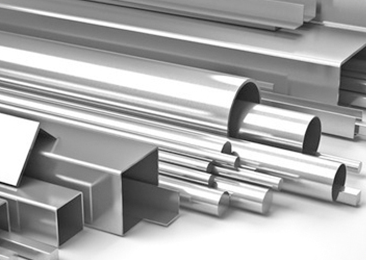What Things to Consider While Approaching Anodizing Service Provider

While approaching an anodizing service provider, there are several key factors to consider to ensure that you select the right partner for your needs. Anodizing is a process that enhances the surface properties of metal parts, providing increased durability, corrosion resistance, and aesthetic appeal. Whether you’re a manufacturer seeking to improve the quality of your products or an individual looking to customize metal components, finding the right Anodizing Services provider is essential.
In this comprehensive guide, we will explore the important considerations to keep in mind when approaching an anodizing service provider.
- Expertise and Experience: One of the first things to consider when approaching an anodizing service provider is their expertise and experience in the field. Look for a company that has a proven track record of delivering high-quality anodizing services to clients across various industries. An experienced provider will have the knowledge, skills, and resources to handle a wide range of anodizing projects efficiently and effectively.
- Types of Anodizing Processes: Anodizing can be performed using different processes, each offering unique benefits and properties. Before selecting a service provider, consider the specific type of anodizing process that best suits your requirements. Common methods include sulfuric acid anodizing, hard anodizing, chromic acid anodizing, and more. Ensure that the provider offers the type of anodizing process that aligns with your project needs.
- Quality Standards and Certifications: Quality is paramount when it comes to anodizing services, especially if your components will be used in critical applications or industries with stringent requirements. Look for a service provider that adheres to industry standards and holds relevant certifications such as ISO 9001 or AS9100. These certifications demonstrate a commitment to quality management systems and ensure that the anodizing process meets established standards for consistency and performance.
- Materials Compatibility: Not all metals are suitable for anodizing, so it’s essential to consider the compatibility of your materials with the anodizing process. While aluminum is the most commonly anodized metal, other metals such as titanium, magnesium, and certain alloys can also be anodized. Ensure that the service provider has experience anodizing the specific material(s) used in your components to achieve the desired results.
- Customization Options: Depending on your project requirements, you may need customization options such as color dyeing, masking, or selective anodizing. Choose a service provider that offers a range of customization options to meet your unique needs. Whether you’re looking to match a specific color scheme or apply intricate designs, ensure that the provider can accommodate your customization requirements effectively.
- Turnaround Time and Lead Times: Time is often of the essence in manufacturing and production environments, so it’s crucial to consider the turnaround time and lead times offered by the anodizing service provider. Inquire about their production capacity, scheduling process, and average lead times for completing anodizing projects. Select a service provider who can complete the work by the deadline without sacrificing quality.
- Pricing and Cost Transparency: Cost is a significant factor in any project, so it’s essential to consider the pricing structure and cost transparency of the anodizing service provider. Request detailed quotes that outline all costs associated with the anodizing process, including material costs, labor, setup fees, and any additional services or customization options. Ensure that the provider offers competitive pricing without sacrificing quality.
- Customer Reviews and Testimonials: Before finalizing your decision, take the time to research customer reviews and testimonials to gauge the reputation and satisfaction level of the anodizing service provider. Look for feedback from previous clients regarding the quality of work, communication, responsiveness, and overall experience with the provider. Positive reviews can provide valuable insights into the provider’s reliability and professionalism.
- Environmental and Sustainability Practices: Many companies prioritize sustainability and eco-friendly operations in today’s environmentally sensitive world. Consider partnering with an anodizing service provider that employs environmentally friendly processes and practices. Inquire about their waste management protocols, recycling efforts, and adherence to environmental regulations to ensure that your project aligns with your sustainability goals.
- Communication and Customer Support: Effective communication and responsive customer support are essential for a successful partnership with an anodizing service provider. Choose a provider that prioritizes clear communication, provides regular updates on project status, and is readily available to address any questions or concerns you may have. A provider that values customer satisfaction and maintains open lines of communication can help ensure a smooth and positive experience throughout the anodizing process.
- Location and Accessibility: The location of the anodizing service provider can also be a consideration, especially if you require on-site visits or logistics support. Consider the provider’s proximity to your location, transportation options, and accessibility when making your decision. Choosing a provider that is conveniently located can help streamline communication, reduce lead times, and facilitate collaboration throughout the anodizing process.
- Flexibility and Scalability: Finally, consider the flexibility and scalability of the anodizing service provider to accommodate your evolving needs and project requirements. Choose a provider that can adapt to changes in project scope, volume, or timelines without compromising on quality or efficiency. Whether you require a one-time project or ongoing anodizing services, ensure that the provider can scale their operations to meet your needs effectively.
In conclusion, approaching an anodizing service provider requires careful consideration of several key factors to ensure a successful partnership and satisfactory outcomes for your project. By evaluating factors such as expertise, quality standards, materials compatibility, customization options, turnaround time, pricing, customer reviews, environmental practices, communication, location, flexibility, and scalability, you can make an informed decision and select the right provider to meet your anodizing needs effectively. Remember to conduct thorough research, request detailed quotes, and communicate openly with potential providers to establish clear expectations and achieve your project goals successfully.
ALSO READ: ROD END: AN EXPERT GUIDE TO THE MANUFACTURING PROCESS








